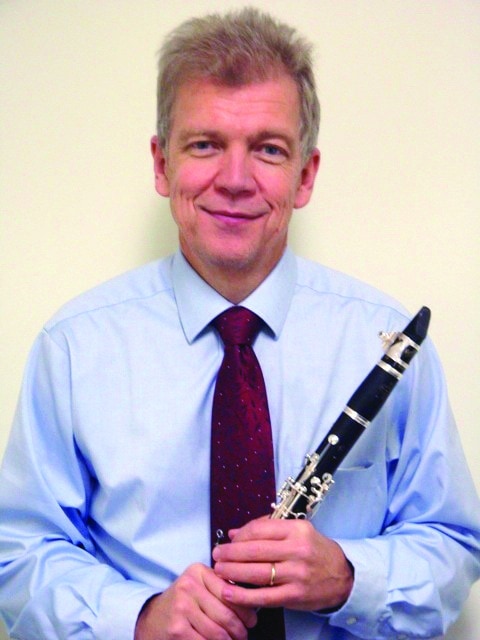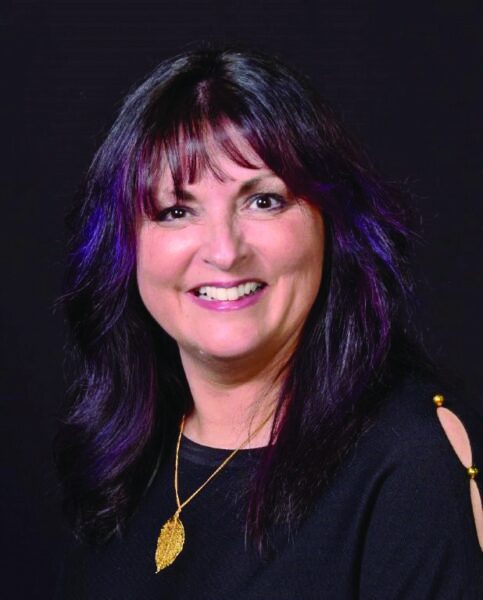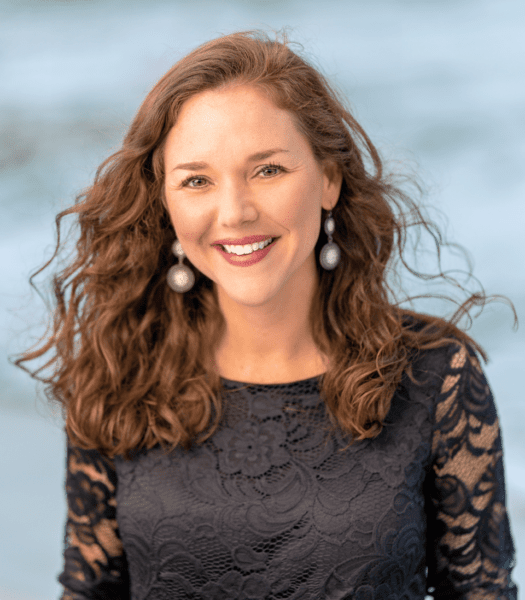/ News Posts / The Meaning of Mentorship
The Meaning of Mentorship
By NAfME Member Lori Schwartz Reichl
This article first appeared in the August 2021 issue of Teaching Music.
“The delicate balance of mentoring someone is not creating them in your own image but giving them the opportunity to create themselves.” — Steven Spielberg
“Mentorship is an ongoing process regardless of where one is in their career. From first-year teachers to 35-year veterans, mentors can be found for anyone at any point,” says Neil Anderson, Ed.D., a Conn-Selmer Educational Clinician and newly appointed principal of Golden Hill Elementary School of the Arts in Fullerton, California.
Anderson hopes that music educators never lose their love of learning. “That quest for knowledge, to improve our practice, and to be better for ourselves,” he says, “will only make our students better and more equipped for the real world.”
The Pre-Service Teacher
Mentoring begins before one becomes a teacher in the education profession. “For the university students,” Anderson says, “they need to observe, ask questions, observe, ask more questions, observe some more, and ask even more questions.” This reflective tool is imperative for understanding and growth.

Anderson defends his dissertation titled, “Meaningful Professional Learning and Mentorship and its Impact on the Efficacy of Secondary Music Educators.”
“Unfortunately, and not through any fault of their own,” notes Anderson, “the university systems are not set up to truly prepare new teachers for the rigors of the profession. Ultimately, it is then left to the student.” Anderson encourages master educators to consider an open-door policy that allows for collegiate students to spend time in various programs to observe, experiment, and ask questions. “Invite them in, offer an internship, and make resources available to them,” he says. He reminds educators at all stages in their career that “we must never lose sight of what it means to be a first-year teacher,” adding, “the walk in those shoes can be a lonely one.”
“It sounds so simple, but the best strategy as a mentor is to listen, and before providing feedback to the mentee, ask clarifying questions that allow the mentee to reflect upon their practice.” — Steve Litwiller
Steve Litwiller, mentoring chair for the Missouri Music Educators Association and adjunct professor of music at Central Methodist University in Fayette, Missouri, believes that in addition to teacher preparation programs ensuring that preservice teachers possess a depth of knowledge of their primary instrument/voice, they must also receive as much practical teaching experience as possible, whether it be as substitute teachers or teacher aides in a school setting.
The First-Year Teacher
Jamila L. McWhirter, professor of choral music education at Middle Tennessee State University in Murfreesboro, Tennessee, states, “Emerging music educators — those in their first three years of teaching — need dependable assistance from colleagues to thrive and flourish in music education. Interacting with experienced music teachers is a professional necessity. Continuous mentoring and access to collaborative networking can increase assurance and vision in beginning music educators.” As a profession, McWhirter believes we must “strive to provide opportunities for first-year music educators in which they can examine their teaching through deliberation, reflection, and discourse.”
Mentoring Strategies
For the first-year music educator who is assigned or seeks out a mentor, McWhirter believes that preparation is the key to the initial mentoring meeting. First-year music educators should be prepared to share their personal mission statements with their mentors in the opening meeting. It is helpful to discuss goals and ask the mentor questions about resources. A sense of trust and comfort must be established between the mentor and mentee, and boundaries for the relationship should be set.
“The logistical issues are not always the most obvious, but can cause unforeseen issues if not addressed early,” McWhirter says. She cautions that there will be times during the mentoring relationship when it will be necessary “to discuss emotionally charged issues but focusing on the problems and not the solutions will be a drain on the mentoring relationship.” She encourages the mentee to “set the tone early that as a first-year teacher, you wish to be a problem solver.”

An informal meeting with McWhirter and former students, Grant Farmer and John McDonald, as they begin their journey applying for positions in upper academia. McWhirter believes mentoring is about building relationships that continue beyond formal instruction.
Litwiller says first-year teachers are often afraid to ask questions or ask for help. He believes that mentoring strategies that place the novice teacher in a group setting with both mentors and mentees can be comfortable. He suggests inviting the “grizzled veterans to share their most embarrassing mistake story with the group.” Once the first-year teachers realize that “we all go through this in our early years, and they are not alone,” says Litwiller, “then they will often share similar joys, problems, and experiences with everyone in the room.”
He also insists that anecdotes or resume accomplishments shared by the mentor are rarely helpful. Instead, “Literature suggestions, solutions to ensemble problems that have worked, or organizational ideas to improve efficiency or discipline are often not covered in some colleges and student teaching experiences” offer the best results. He believes new teachers need nuts-and-bolts solutions to make things work.
“We must never lose sight of what it means to be a first-year teacher. The walk in those shoes can be a lonely one.” — Neil Anderson
“As a mentor,” Anderson says, “the single best thing we can do in the mentor-mentee relationship is commit to the process and accept our roles as mentors. It sounds so simple, but the best strategy as a mentor is to listen, and before providing feedback to the mentee, ask clarifying questions that allow the mentee to reflect upon their practice.” Rather than telling a first-year teacher how to resolve an issue, Anderson encourages both parties to be actively involved in the reflective process. “Mentoring is not coaching,” Anderson emphasizes.
First-Year Misconceptions
Anderson is convinced that the biggest misconception of first-year teachers is that they believe they already have the answers. He says, “In reality, most first-year teachers are overwhelmed and doing all they can to keep their heads above water. So often, once they get into the classroom environment and the day-to-day grind sets in, seeking a mentor or asking for help becomes just another thing on the to-do list.” This non-action is often perceived as not wanting or willing to ask for help. Anderson insists that it’s quite the opposite.
Litwiller observes that the biggest concern in the early years of teaching is the amount of organization and time management it takes to do the job efficiently. He recognizes that elementary instructors often need guidance in maneuvering their students in and out of the classroom. In the advanced grades, Litwiller says, “Instrumental and choral secondary teachers tend to over program for their groups. They often do not have a firm grasp of literature and choose music that they played in high school or college.” Mentees require advice on what level of music meets the needs of their students.
“The biggest misconception of first-year music educators,” says McWhirter, “is that they are not proactive partners in the mentoring process.” In her book, A Creative Duet: Mentoring Success for Emerging Music Educators (Oxford, 2017), she encourages emerging music educators to “examine themselves as a person, musician, and teacher before their first meeting with a mentor. They need to also examine their dispositions and attitudes about how they view the mentorship process.”
With numerous mentors by their side throughout their degree programs, McWhirter believes that first-year music educators may feel as if they wish to “break free” from guidance. “Others,” she says, “may feel lost in their new positions and wish for the mentor to solve every issue.”
McWhirter says. “Music education research in the field of mentoring, especially related to the first year of teaching music, indicates that early-career music educators deal with numerous issues, including classroom management, isolation, and micropolitical challenges such as dealing with administrators and colleagues.” As a mentor, she insists it is important to acknowledge these feelings may influence how first-year music educators view and enter the mentoring process.
Mission of the Mentee
McWhirter recognizes that there are numerous articles and books written specifically for mentors but few for those being mentored. “We need to equip our pre-service music educators with an understanding of the value of mentoring,” she says. “As music teacher educators, it is our responsibility to prepare our students to proactively recognize and seek the benefits of mentoring relationships.” (Editor’s note: See the October 2019 Teaching Music article titled, “An Engaged and Enthusiastic Mentee,” by Lori Schwartz Reichl, which offers ideas on how mentees can seek feedback and get the most from a mentor.)
Mentoring Mindset
McWhirter reminds music educators, “It is important to emphasize that a productive mentoring relationship will be one of support, tolerance, respect, and openness toward one another.” She encourages both parties to “Create a cooperative environment in the mentoring sessions where the conversations center around how to best serve the students being taught. The important point to remember in a creative, collaborative mentoring relationship is that the human elements of connection, affiliation, and rapport work together to form a genuine bond that must be established early and remain as the center of the partnership.”
For first-year music teachers seeking mentorship, particularly if their school/district/county does not assign a mentor or offer a mentoring program, McWhirter encourages them to first seek the council of university professors who know the elementary and secondary music educators in the area. “Most professors have studied, taught, researched, and presented in numerous locations and are continuously involved with local K–12 programs through student teaching observations, clinics, festivals, and other opportunities,” she points out.
Second, McWhirter encourages young teachers to connect with local professional music education organizations that often prepare mentoring programs in which a first-year music educator can be paired with an experienced music educator, similarly to the program Litwiller chairs for the state of Missouri.
“It is important to emphasize that a productive mentoring relationship will be one of support, tolerance, respect, and openness toward one another.” — Jamila McWhirter
“Third,” says McWhirter, “if the first-year teacher has decided to approach a seasoned music educator in the area for mentoring, it is a good idea to start by simply asking to observe the experienced teacher’s classroom. Then the invitation may be reversed.” A conversation can then ensue if the mentorship will be a good fit for both parties.
Litwiller believes that master music educators want young teachers to succeed for the profession to maintain excellence. He encourages first-year teachers to inquire about the most successful programs within an hour’s drive of their location. He says, “Contact the school and build a relationship with that teacher, then set up a meeting time to start talking shop.”
Like Litwiller, Anderson confirms, “I have yet to meet a veteran teacher in the music education field who is not willing to help.” In addition to observing and seeking out mentoring, Anderson encourages first-year teachers to attend conferences, be an active participant in sessions, ask questions, and follow up with the presenters, “especially if it is a presenter whom you feel could help guide you in your career.”
He encourages novice teachers to not only join their local music educators’ association, but also to get involved in some capacity. “Everything we do is an opportunity to make connections, learn from, and grow,” he says. “Seize those moments, ask the questions, and be prepared to reflect on your practice.”
About the author:
NAfME member Lori Schwartz Reichl (MakingKeyChanges.com) is a champion of mentorship and motivation in education. She has served as an active adjudicator, clinician, conductor, instructor, speaker, and writer and has authored over 70 articles for an assortment of education publications.
Did this article spur new ideas for your music program? Share them on Amplify! Interested in reprinting this article? Please review the reprint guidelines.
The National Association for Music Education (NAfME) provides a number of forums for the sharing of information and opinion, including blogs and postings on our website, articles and columns in our magazines and journals, and postings to our Amplify member portal. Unless specifically noted, the views expressed in these media do not necessarily represent the policy or views of the Association, its officers, or its employees.
January 11, 2022. © National Association for Music Education (NAfME.org)
Published Date
January 11, 2022
Category
- Careers
- Professional Development
Copyright
January 11, 2022. © National Association for Music Education (NAfME.org)









